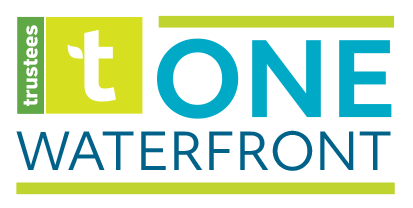What we're reading this week | The #FridayFive
The nature cure: Inside the health revolution that could change your life
Outside Online, by Christine Yu
With nature-prescription initiatives popping up across the country (at the time of publication, there were 71 such programs in 32 states, according to the Institute at the Golden Gate’s 2018 ParkRx Census), the acceptance of nature as a legitimate form of medicine is finally here. [READ MORE]
Rep. Michlewitz Secures State Funding for North End Parks
NorthEndWaterfront.com, April 30
As part of the first budget State Rep. Aaron Michlewitz has introduced as the new Chair of the House Ways and Means Committee, the Representative allocated funding for Christopher Columbus Park, Copp’s Hill Terrace and Cutillo Park in the North End. [READ MORE]
D.C. Is First to Plan to Remove, Retrofit Flood-Prone Buildings
Bloomberg, April 29, by Christopher Flavelle
Washington is announcing a goal of retrofitting or removing all of its flood-prone buildings by 2050, the first major U.S. city to set such a policy. The proposal is part of a broader plan, called “Resilient DC”, released Monday, that sets a range of goals for coping with increasingly severe floods and heat waves, the major climate stresses projected for the city. [READ MORE]
Friends of the East Boston Greenway Sets up Mary Ellen Welch Memorial Fund
East Boston Times-Free Press, April 26, by John Lynds
“Mary Ellen (Welch) was one of a small group of Eastie residents who believed the trash filled, abandoned freight tracks could become a welcoming, safe Greenway that would remove years of contamination in the midst of the neighborhood,” said Welch’s longtime friend and Greenway President Karen Maddalena. Now the Friends of the East Boston Greenway have established the Mary Ellen Welch Memorial Fund to help raise money for future Greenway improvements and programs. [READ MORE]
State should pay its fair share on preservation act
Boston Globe, April 25
The CPA, which helps communities fund affordable housing, open space, and historic preservation, has been around for nearly two decades, with about half of the state’s cities and towns participating. Boston is a relative newcomer to the program, opting in in 2016 by assessing a 1 percent surcharge on residential and business real estate tax bills. [READ MORE]

